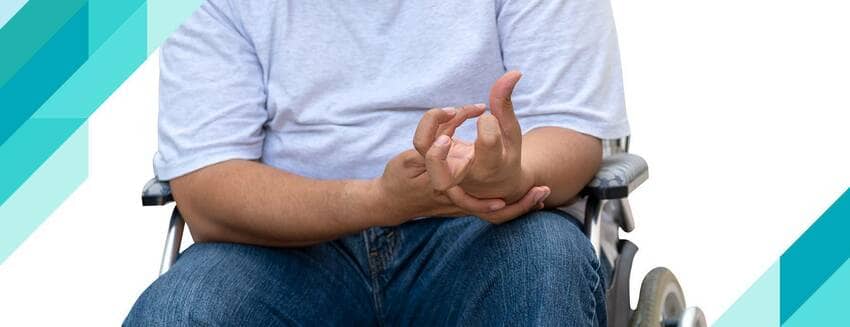
Stroke is one of the most common causes of death and disability. So much so that 15 million people in the world have a stroke every year. Of these people, 5 million become disabled and 5 million lose their lives. In our country, 130 thousand people have a stroke every year. Experts warn! In the next 10 years, almost one in every family will have experienced a stroke. Emphasizing that personalized precautions and prevention methods should be given importance, Uzm. Prof. Dr. Celal Şalçini points out that physical activity and exercise reduce the risk of stroke and underlines that smoking should never be smoked to prevent stroke. Şalçini also reminds stroke check-up!
[haberyatay=smoking-increases-the-risk-of-stroke-and-felc]
Üsküdar University NPISTANBUL Hospital Neurology Specialist Dr. Celal Şalçini gave important information about stroke prevention.
If you smoke, you are 2.5 times more likely to have a stroke than non-smokers
"Stroke has certain risk factors. For example, the most common risk factors for cerebrovascular occlusion are smoking, hypertension, diabetes, heart rhythm disorder called atrial fibrillation, high blood lipids, high alcohol intake, depression, and high weight." Dr. Celal Şalçini,
"Therefore, individualized precautions and prevention methods should be emphasized. Each of these has a certain risk of cerebrovascular occlusion. For example, if you smoke, you are 2.5 times more likely to have a stroke than non-smokers, and if you have diabetes, you are 1.6 times more likely to have a stroke. Therefore, prevention is about risk factors. It is necessary to analyze and correct the risks according to the individual. One of the most important risk factors for cerebral hemorrhages is uncontrolled hypertension."
Pay attention to these warnings!
Noting that physical activity and exercise reduce the risk of stroke with direct and indirect effects, Uzm. Dr. Celal Şalçini made the following warnings:
"Smoking should never be smoked. This includes hookah. All types of alcohol increase the risk of stroke. Diabetics should reduce their sugar control to appropriate ranges as much as possible. They should consider treating their diabetes as an investment in their long-term vascular health. Seafood reduces the risk of stroke, especially small fish containing omega-3. Nuts, peanuts and nuts are also good for blood vessels with their essential fats and minerals. If a person is obese, he/she should definitely strive to reduce his/her weight to the normal range. Cholesterol is a risk factor; however, it is a risk factor like smoking. If there are very high values and first-degree relatives have early strokes or heart attacks, they should not refrain from using medication if the doctor recommends it. In other words, it increases your risk of stroke at the same rate as smoking. Therefore, forgetting other risk factors and saying 'I have cholesterol' does not make sense. All risks should be reduced appropriately. After all, every food that is good for the heart is also good for the brain. A person is only as young as his/her vascular youth."
Risk factors are detected with stroke check-up
Uzm. Dr. Celal Şalçini expressed the importance of stroke check-up in stroke prevention as follows:
"Check-up is to prevent death or disability or to diagnose and cure the disease at an early stage by screening and investigating the diseases or their risk factors that may pose a danger of disability or death when they occur in a certain age and gender. From this point of view, stroke occurs more frequently after the age of 50-60. Of course, in the presence of risk factors, it occurs at an earlier age and its frequency increases with increasing age. Stroke or paralysis is the loss of function in the relevant brain region as a result of blockage or rupture of one of the vessels supplying the brain. From this point of view, it can manifest itself as a blood vessel blockage or bleeding in the brain. Stroke is often (85%) characterized by vascular occlusion, while cerebral hemorrhage is less common. According to the World Health Organization, 15 million people in the world have a stroke annually. This means 1 stroke every 40 seconds or 2,200 strokes per day. Of those who have a stroke, 5 million become disabled and 5 million die. It is one of the most common causes of death and disability. In our country, 130 thousand people have a stroke every year. In the next 10 years, almost one person in every family will have had a stroke.
[haberyatay=tmu-effective-in-stroke-treatment]
If you have any of these symptoms, you should definitely have a stroke check-up
If you have any of the following symptoms, you should definitely consult a neurologist and have this stroke check-up. Many stroke patients may have the following symptoms without a major stroke. These symptoms are usually ignored and passed off as nothing. However, when a physician is consulted, treatment can prevent a major stroke.
Symptoms
- Sudden loss of vision,
- Sudden inability to speak,
- Short-term weakness or numbness in the body,
- Short-term balance disorder or dizziness,
- Short-term forgetfulness, not recognizing the surroundings,
- Sudden loss of consciousness,
- New onset headache."
Stroke check up is important for the diagnosis of which diseases?
Üsküdar University NPISTANBUL Hospital Neurology Specialist Dr. Celal Şalçini said, "Stroke check-up can detect diabetes, goiter disorder, blood and liver diseases, hypertension, whether blood fats are high, heart rhythm and valve structural problems, whether there is stenosis in the carotid artery" and concluded his words as follows:
"In other words, in a sense, it reveals not how old a person is biologically, but how healthy his/her vascular age is. Because the real age is the vascular age. It partially differs according to age groups. Since stroke risk factors under the age of 45 differ from stroke risk factors over the age of 50, there may be slight differences in screening."





